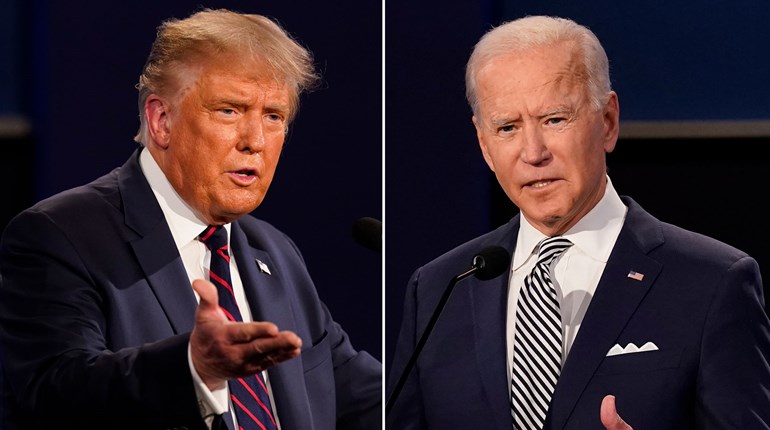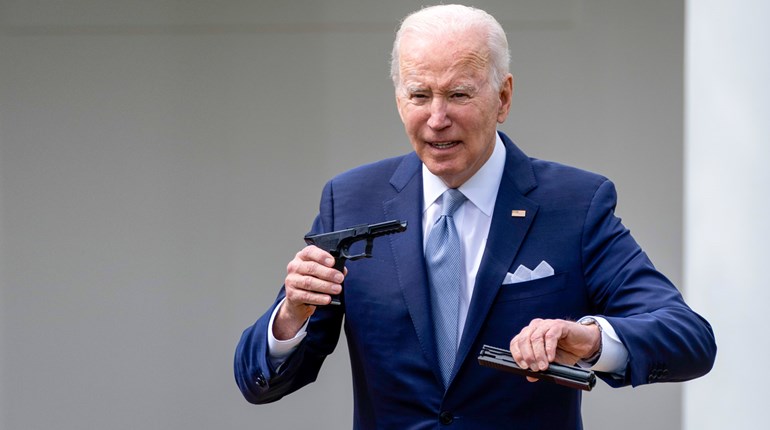
“It’s been a bad year,” Sean Connery’s character says in “The Wind and the Lion.” “The next one will probably be worse.” The Brady Campaign’s Legal Action Project might as well say the same, as the group’s attempts to legally destroy legitimate gun manufacturers and dealers have met repeated defeats that were capped, this June, by a blow that threatens to destroy the Project’s very existence.
First, a bit of history. In the 1990s, anti-gunners thought they had discovered a new tool in their quest to forcibly separate Americans from their firearms: They would file lawsuits targeting gun manufacturers, seeking to have them pay for criminal misuse of the guns they had made. Better yet, they would recruit cities to seek damages for all the damage their entire criminal class had done to date. One anti-gun judge allowed seven crime victims to sue 25 manufacturers, even though Brady had no idea whose guns their criminal attackers had used—the judge would allocate the damages to manufacturers based on their “market share.”
Odds of success were low, since the law is reluctant to make an honest person pay for a criminal’s actions—the victim of a car theft isn’t liable if the thief runs over someone—but the odds were unimportant. The anti-gunners could sue where they were likely to find anti-gun judges and juries, and just one big verdict would ruin a manufacturer. The Brady Campaign’s Legal Action Project soon had a dozen cities, and more individuals, suing or ready to sue.
Stunning victories seemed to be on the horizon. One anti-gun judge allowed seven crime victims to sue 25 manufacturers, even though Brady had no idea whose guns their criminal attackers had used—the judge would allocate the damages to manufacturers based on their “market share.” If a manufacturer made 10 percent of guns made that year, it would pay 10 percent of the verdict—even if none of its firearms were involved.
With even a bit of luck, the anti-gunners thought, American gun manufacturing would become extinct through a “death by a thousand cuts.” They would have achieved the goal of a complete gun ban without bothering to win over voters or legislators.
It didn’t quite turn out that way. The National Rifle Association and its members responded, and after a long, hard fight, states passed firearms pre-emption laws to prevent such abuses, and Congress passed the Protection of Lawful Commerce in Arms Act (PLCAA), which required courts to dismiss such frivolous lawsuits. The law did have some exceptions: A manufacturer or dealer could be held liable for manufacturing a genuinely defective product, for knowingly breaking state or federal law or for negligent entrustment of a gun. (Negligent entrustment traditionally involves cases where an automobile owner lends his car to someone he knows is a reckless driver.)
The gun-haters did not give up, however. The head of Brady’s Legal Action Project proclaimed, “News of the death of litigation against the gun industry has been vastly premature.” Brady proceeded with new lawsuits, trying to structure them so as to fit within the exceptions allowed by the PLCAA.
Most of these fizzled. Last summer, the U.S. 7th Circuit Court of Appeals rejected Brady’s claims against Armslist, an Internet site that sells nothing, but allows guns to be listed for sale. In that ruling, the court noted that “simply enabling consumers to use a legal service is far removed from encouraging them to commit an illegal act.”
Brady has persisted with the suits for a reason. What we might call its “legal business model” has been simple. Brady could get free lawyering from big law firms that wanted to boast of providing “pro bono” services for public causes—meaning Brady’s actual cost for a lawsuit was just a few hundred dollars in filing fees. In return, it could count on favorable publicity, which would translate into increased fundraising. In fact, it could show a profit even if it lost the great majority of its lawsuits.
The gun dealer or its insurance company, on the other hand, would spend tens or hundreds of thousands of dollars fighting the suit, and in doing so take a major economic hit even if the company won. Brady therefore planned to win the policy battle with a legal strategy that lost in court.
It seemed as though it would be a winning approach—but so did George Custer’s, until it wasn’t.Brady could get free lawyering from big law firms that wanted to boast of providing “pro bono” services for public causes—meaning Brady’s actual cost for a lawsuit was just a few hundred dollars in filing fees.
Brady’s “Little Bighorn moment” came on June 17, in a case it had brought in Colorado state courts, but the defendants had removed to the U.S. District Court. Thinking to cash in on the publicity surrounding the infamous Aurora, Colo., mass murder—the one where the killer attacked a movie theater full of victims protected only by a “No Guns Allowed” sign—Brady brought suit on behalf of the survivors of one victim. Brady’s attorneys, joined by volunteers from the big Washington, D.C., firm Arnold & Porter, filed a massive, 256-paragraph legal complaint. It named Lucky Gunner, an Internet site from which the killer had bought ammunition; The Sportsman’s Guide, from which he had bought a magazine and ammunition; BTP Arms, from which he had obtained tear gas grenades; Bullet Proof Body Armor, where he obtained body armor; and “John Does 1-10,” just in case they’d overlooked someone else who could be sued.
All the sales had been via the Internet, with no one having any reason to suspect the buyer was planning to commit murder. Brady tried to meet that difficulty by alleging that the sellers had “operated businesses which attracted—and catered to—dangerous persons such as [the killer], and yet they failed to implement any reasonable safeguards.” There was no claim that “dangerous persons” had ever bought from the defendants before. Instead, Brady listed a string of mass killings (including one in Norway) that, it claimed, should have put the defendants on notice that a mass killer might try to buy from them. Thus, Brady implied, any seller of ammunition or gun accessories should be treating every customer as an incipient mass murderer, and sell to him only if it can be proven that he is not. Its contention was that every legitimate ammo buyer should be treated as guilty until proven innocent.
That still left the problem of the PLCAA, which barred suits based on allegedly negligent but legal sales. Brady relied upon two exceptions in that Act.
The first exception allowed suit for “negligent entrustment”—which is when the owner of an item (usually a car) loans it to a person he knows is incompetent to use it. Of course, neither Lucky Gunner nor any other defendant loaned ammunition to the killer, and they had no reason to know he was a future criminal. Never mind. Under Brady’s legal business model, the object of this 256-paragraph complaint was to burden the defendants and run up their legal costs. Winning would be convenient, but not necessary.
The second exception was for sales in violation of state law. Yet all of these sales were completely lawful. Here, the Brady attorneys had to get tricky. Colorado, like most states, has laws against maintaining a “public nuisance,” broadly defined as something that creates an unreasonable interference with the public’s right to use and enjoy public places. For instance, slaughterhouses are lawful, just don’t build one in a residential area.
“Aha!” Brady must have thought, “A loophole we can fit through by creative lawyering!” Brady alleged that Lucky Gunner, by selling ammunition, had created “a present menace and interference with enjoyment of public spaces, including the disturbance of the public peace of mind.” On this premise, the group claimed, those ammunition sales (and apparently anyone’s ammunition sales) violated state law, and could be a basis for a lawsuit despite the PLCAA. Based on this, Brady asked not only for damages, but also for an order shutting down the businesses “until their business practices have been changed and approved by the court.”
Nice try, but no cigar. Federal District Judge Richard P. Matsch dismissed Brady’s lawsuit, based on the PLCAA and a Colorado law that paralleled it. The Brady Campaign probably shrugged its collective shoulders. Its legal business model still worked. It had sacrificed a few hundred dollars in losing, while the sellers had paid out hundreds of thousands of dollars in winning.
Then came the lightning bolt that shattered the entire approach. The Colorado protection statute went further than the federal one did, stipulating that a defendant who won dismissal based on it should recover its attorneys’ fees. Lucky Gunner and the other defendants filed a motion for award of their fees.
On June 17, Matsch granted the motion, and ruled that Lucky Gunner and the other defendants were entitled to $203,000 in attorney fees! Matsch’s ruling slapped Brady down, and hard.
“It is apparent that this case was filed to pursue the political purposes of the Brady Center, and given the failure to present any cognizable legal claim, bringing these defendants into the Colorado court where the prosecution of [the killer] was proceeding appears to be more of an attempt to propagandize the public and to stigmatize the defendants than to obtain a court order which counsel should have known would be outside the authority of this court,” he ruled. The Colorado protection statute went further than the federal one did, and provided that a defendant who won dismissal based on it should recover their attorneys’ fees.
Brady had argued that the attorneys’ fees claimed were too high; too much effort had been put into the defense. The judge made short shrift of this.
“This was an all-conceivable claims attack on these Internet sellers, attempting to destroy their legitimate businesses and invalidate the federal and state statutes protecting them, …” he wrote. “Those who ignite a fire should be responsible for the cost of suppressing it before it becomes a conflagration.”
The ruling was a stunning blow to Brady’s litigation business model. From this point on, its strategy of sticking dealers with the costs of defense, even if Brady loses, becomes risky. Brady, or its clients, may wind up bearing those costs.
The ruling also puts the anti-gun flagship into a painful dilemma. Technically, the award is against Brady’s clients, not against Brady. (The judge noted that imposing the costs on the attorneys would require a separate motion, and he saw no need to go there. He noted, “It may be presumed that whatever hardship is imposed on the individual plaintiffs by these awards against them may be ameliorated by the sponsors of this action in their name.”)
If the Brady Campaign doesn’t pick up the tab, it will likely find it difficult to recruit clients in the future. Brady lawyers would have to explain: “We want you to join a lawsuit that is unlikely to win, but will generate good publicity for us. If it loses (and it likely will), you may be on the hook for hundreds of thousands of dollars, and we will walk away, like we did thelast time.”
The results, however, are equally painful if Brady chooses to pay. The group has fallen upon hard times, and the fee award would be a big chunk of its budget. The $203,000 awarded in the Lucky Gunner lawsuit is well over half the organization’s total payroll ($380,000), and considerably more than its office rent ($125,000).
Brady could, of course, turn to fundraising to cover the expense, but, “We really fouled up,” is a poor beginning to a fundraising pitch. Likewise, appealing to anti-gun donors with, “We’ll give your donation to Lucky Gunner,” is unlikely to be much more productive.


































